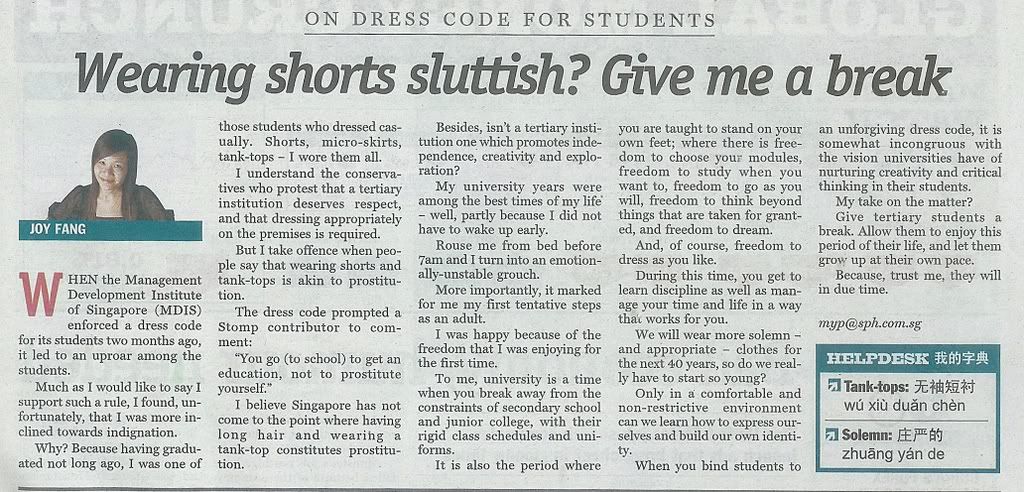The 2009 Primary School Leaving Examination (PSLE) has just concluded. And as with previous years there was much dissatisfaction about the examination papers - this year in Maths and Mandarin papers. There were complaints about the difficult maths paper even by top students. Now there was foul cry on the possible 'unfair advantage' by some students after one of the Chinese passage was similar to that of a passage found in one of the assessment books.
Of course in both instances, the reply from the Ministry of Education was as expected. For the Maths paper, the Education Ministry said that the paper was "comparable" to those of previous years with no change in syllabus, question types or number of questions.
As for the Mandarin paper, the Singapore Examinations and Assessment Board said that although the setter had drawn reference from an external source, the passage is not a reproduction and that the content and language in the passage had been substantially modified to be aligned to the assessment objective. The board also assured parents that pupils who had seen the other passage would not have been unfairly advantaged over those who did not.
But are the complaints justified?
So if the basic principle was the same, why then are top students having difficulty answering them? My guess is the way they study. A lot of top students are very hard working. I am sure most of them had already completed at least 80% of all available assessment books in the market if not more. By doing more is good, but may not be very effective. This is because after doing the hundredth question, it practically becomes rote learning. The understanding part is lost. Hence when questions are rephrased, students are taken aback because it is different from the 'norm'; and they lost their confidence. But if they had been learning intelligently, their first reaction would not be one of awe but 'this is another ratio problem' - a very neutral feeling, which is less likely to shatter their confidence.
Such difficult questions should not even be viewed with fear. Students should be trained to looked at such questions as a chance to beat the next guy. Given that our students scores distinction as easily as drinking water, what is there to differentiate the ultra-smart from the very-smart? Hence, instead of trepidation, students should be taught to appreciate such question as a chance to be branded as the ultra-smart. Furthermore, if they are truely the top student, then they should be reassured that if they cannot do it, then nobody else can!
Then the Chinese paper. The similarity between the passage found in the test paper and the assessment book is indeed unfortunate. However, unless the passage and the questions were exactly the same, should the question of unfair advantage even arise?
Comprehension passage is about understanding and as long as the questions are different, then the advantage would be minimum if any. Furthermore, even in the event that there is a perception of unfair advantage, it does not mean that the student can answer the question gained from previous exercise. This is because language is about usage and correct grammatical answers come with practice. Hence it follows that it there is enough practice, there should be no problem answering them in the first place. Whatever perceived advantage will be nullified!
On top of that, if the passage and the questions were truely reproduced from the assessment book, the 'unfair' advantage, in my view is a fair one; as the student must have been working very hard by going through many assessments books. If he had worked so hard, wouldn't this 'unfortunate' incident be fair to him? Hence, in my opinion, the correct way is not to criticise the examination paper but to take the opportunity to teach the student the value of working hard. After all, when can there be a more tangible example than this one?
Whatever the controversies, this incident will recur, as had been happening many times before. So instead of crying foul, in my opinion, this is a good opportunity to teach the student about the many obstacles and setbacks they will encounter in their lifetime. If such a small obstacle and setback can draw such a big reaction, think what will happen when bigger setbacks and obstacles are encountered as they journey through their life. After all, education is not about scoring that distinction; but is about gearing up and be prepared for any eventual obstacles, both planned and unplanned, as one goes through life.






